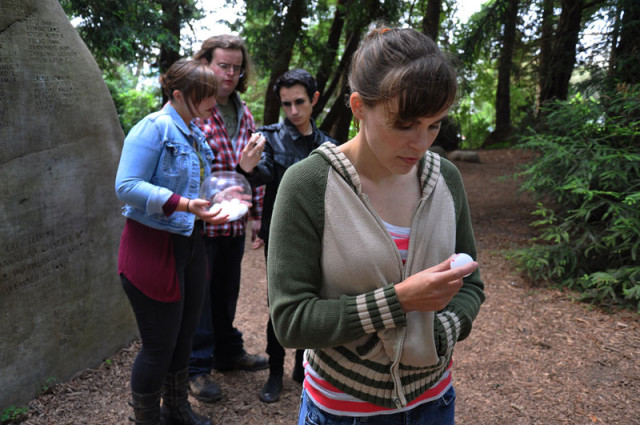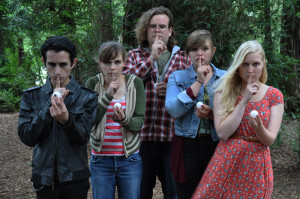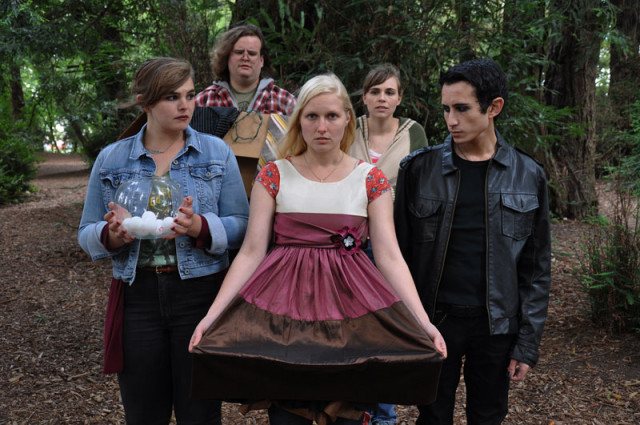What are we to make of Millicent Scowlworthy? In this 2006 play by Rob Handel, a child is found murdered in her adoptive parents’ basement on Christmas morning, shortly after being rescued from war atrocities in “Kosovo or whatever,” and a high school massacre follows in the same town shortly thereafter. And yet there’s the curiously cutesy title and character names (Sass Tendril, Jinx Porbeagle) that make the exercise sound far more playful than it is.
There’s a ritualistic quality to the story as it’s brought to life by 99 Stock Productions, a newish company started in 2012 by San Francisco State grads. A group of nameless teenagers assembles in the wreckage of the local high school to reenact the tragedies, drawing numbered ping pong balls from a fishbowl to determine which role each will play.
Kirsten Royston’s set is like the ghost of a classroom: school chairs in a pile at the rear, and a nimbus of white chalk, ash or paint on the floor, with tendril-like shadows of bare tree branches on the walls.

In company founder Michael Saarela’s compelling staging, the teens act out the story with dedicated solemnity, opening with spellbinding chanting and synchronized movements. It’s clearly not a spontaneous thing, but something they’ve done many times before — and something that’s not allowed. From time to time they have to scatter as unseen police break up the illegal gathering. It’s an insistent ceremony of remembrance in a town that desperately wants to forget.
We never learn anything about the kids reenacting the story, aside from the uniform and bearing that marks each of them as a member of a particular segment of high school society. (Amanda Ramirez’s costumes do a lot of the heavy lifting, suggesting who these people might be.) How well did they know the kids they’re representing? How much time has passed since the incidents, anyway? We can tell by looking at them that they’re all kinds of students who wouldn’t normally hang out together — the skater dude, the popular girl, the emo kid, the jock, the punk — and they don’t talk outside of the reenactment.



